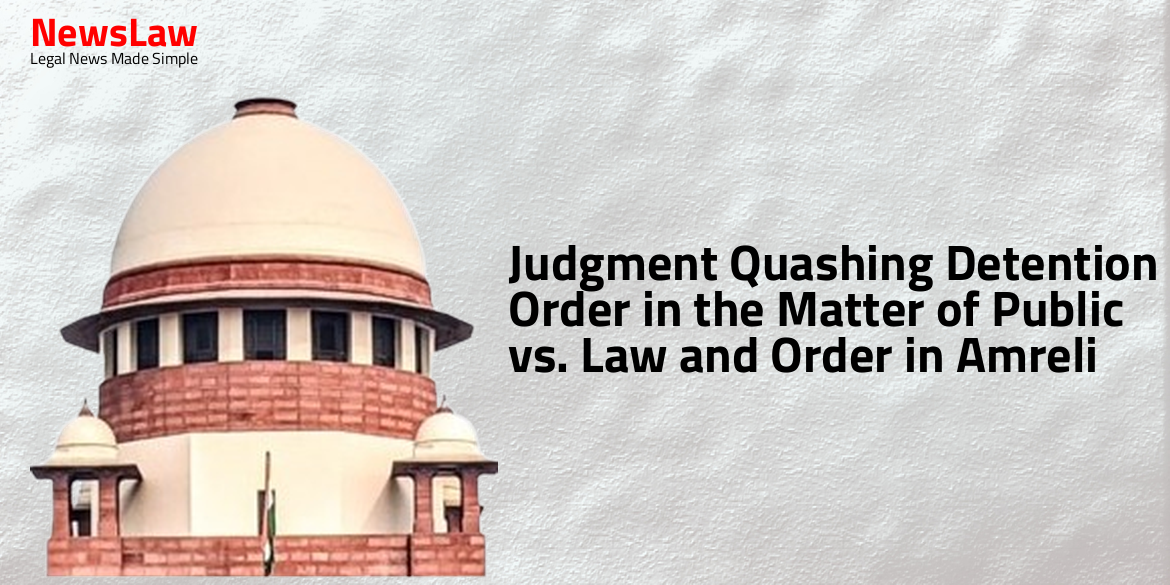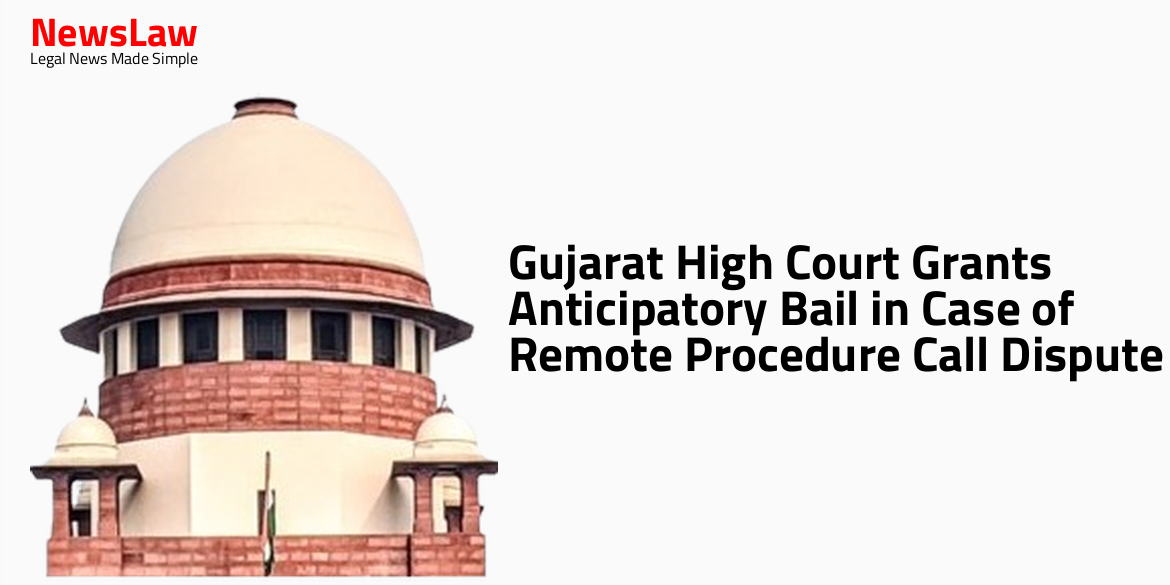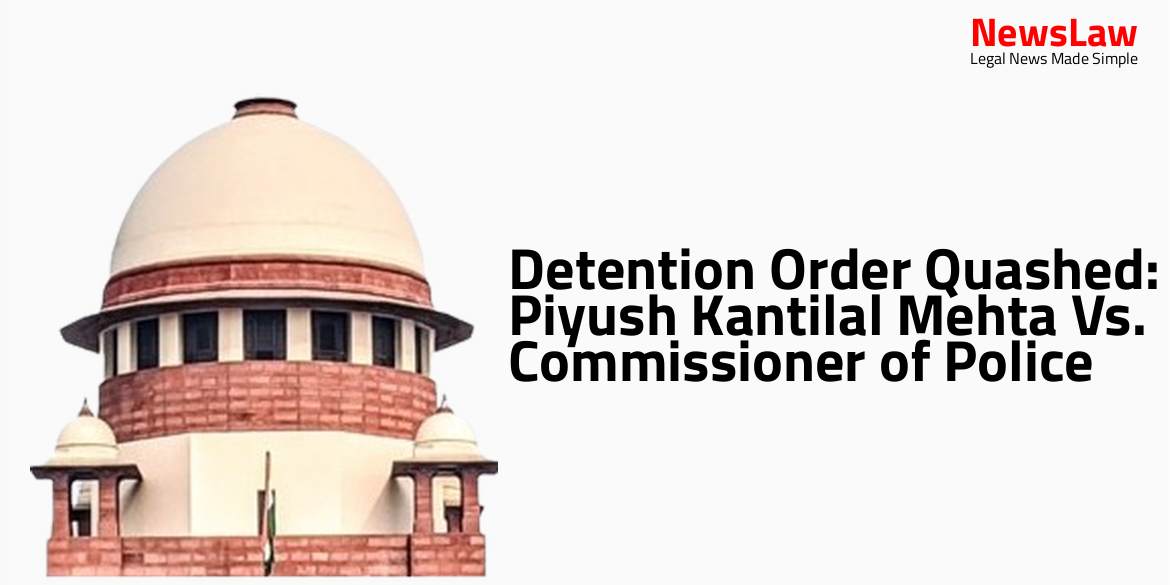Exploring the recent Gujarat High Court judgment quashing a detention order, shedding light on the delicate balance between public order and law and order issues in Amreli. The case delves into the legal nuances surrounding the detenue’s alleged activities and the authority’s assertion of preventive detention. Stay informed with this insightful analysis.
Issue
- The issue at hand is whether the order of detention passed by the Detaining Authority under the Act of 1985 is legally valid.
- The facts and submissions from both parties have been considered to address this issue.
- It is crucial to determine the sustainability of the detention order within the framework of the law.
Arguments
- The advocate for the detenue argues that the grounds of detention are related to law and order, not public order.
- The registration of the offense is believed to have no adverse impact on public order as per the Act, 1985.
- The detenue’s alleged offenses do not affect public order but are limited to law and order issues.
- The detaining authority issued the order to prevent the detenue from acting in a manner prejudicial to public order in Amreli.
Analysis
- The detaining authority failed to prove that the petitioner’s alleged anti-social activities affect or are likely to affect public order.
- Incidents of beating by the petitioner occurred but do not impact public order.
- Being a bootlegger does not warrant preventive detention unless activities adversely affect public order.
- The authority’s subjective satisfaction based on six criminal cases was erroneous in deeming the detenue’s activities prejudicial to public order.
- Contravention of the law affects order, but to impact public order, it must affect the community at large.
- Reference to the six criminal cases led to the belief that the detenue’s actions as a ‘dangerous person’ affect public order, which was deemed incorrect.
- Despite being involved in multiple offenses, the detenue was granted bail in all cases, indicating a lack of impact on public order.
- Manifestation that every act of assault or injury to specific persons does not lead to public disorder.
- Drawing a line of demarcation between serious and aggravated forms of disorder affecting the community and minor breaches of peace.
- Distinction between ‘law and order’ and ‘public order’ as per the decision in Pushkar Mukherjee v. State of West Bengal.
- Explanation of what constitutes ‘public order’ and when it is sufficient for action under preventive detention.
- Reference to the case of Piyush Kantilal Mehta Vs. Commissioner of Police, Ahmedabad for context.
- The material on record is not sufficient to hold that the alleged activities of the detenue have affected or likely to affect the maintenance of public order.
- The subjective satisfaction of the detaining authority is not legal, valid, and in accordance with the law.
- The offences and allegations do not create a feeling of insecurity, panic, or terror among the public in the area in question, thus not impacting public order.
Decision
- The order dated 30.12.2023 passed by the respondent authority is quashed.
- Direct service is permitted.
- The rule is made absolute accordingly.
- The detenue is directed to be set at liberty forthwith if not required in any other case.
- The petition is allowed.
Case Title: MUKESHBHAI @ DADU @ BHARAT DINESHBHAI VAGHELA Vs. STATE OF GUJARAT
Case Number: R/SCA/7020/2024



